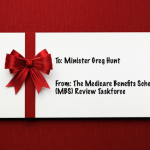The college is again asking the government to increase the rebate for level C and D consults by 18.5% and index them, in its pre-budget wishlist.
Increasing the indexation of Medicare items, securing funding for longer consults and new funding models for general practice, are the RACGP’s main demands ahead of the 2021-22 federal budget.
The first priority of the RACGP, in its document submitted this week to Treasurer Josh Frydenburg, is for an annual indexation increase of MBS rebates from 1.5% to 1.99%.
This proposal is estimated to cost the government $523.7 million over four years.
In the document’s pre-amble, RACGP president Dr Karen Price says the increase to MBS expenditure will enable a more secure future for the general practice workforce.
“General practice has long been the most underfunded sector of the healthcare system in Australia, despite overwhelming evidence of the health benefits and economic savings that could be achieved by investing in primary healthcare,” she says.
“If general practice does not receive a much-needed funding boost, recruitment to general practice training will continue to decline, and the future workforce will be jeopardised.”
And it’s well known that attracting junior doctors to fellow in general practice is difficult. Since 2015, there has been a 17% decline in the number of eligible applications for the Australian General Practice Training Program, despite the number of Australian medical graduates having increased by 20% over the same period.
In its latest submission, the RACGP has asked the government to consider additional funding for:
- MBS rebates,
- the continued availability of MBS-subsidised telehealth consults, and
- supporting new funding models of general practice.
As part of its proposed increase to MBS funding, the RACGP has renewed its longstanding call for longer consultation items (level C and D) be increased by 18.5% – in addition to being indexed at the higher rate.
The rate increase plus increased indexation would cost the government an extra $2.8 billion over four years, according to the submission.
“The RACGP notes there are considerable issues with the current time-tiered MBS rebates in general practice,” the College says.
“Due to poor weighting of rebate values and overly-long time intervals, the patient’s rebate reduces dramatically per minute if they need to spend more time with their GP.”
The RACGP’s pre-budget demands are drawn primarily from the findings of the Medicare Benefits Schedule Review Taskforce, published in December last year.
One recommendation in the Taskforce’s final report was for the Health Minister to introduce a new ‘level E’ item for consultations lasting 60 minutes or more by a GP.
Ahead of the budget, the RACGP has requested that the rebate for this new attendance be at least $192.49.
On the matter of telehealth, the College wants to ensure that MBS items continue to attract an equal rebate to other consults, whether they are taking place by phone, video or face-to-face.
And under the same recommendation, the RACGP has also asked the government to loosen requirements for accessing telehealth.
From 20 July last year, patients must have attended at least one face-to-face consult at the same medical practice in the previous 12 months to access a rebate for telehealth services.
But under the College’s proposal, the 12-month rule could be progressively relaxed to become 24 – 48 months, based on the patient’s level of geographic isolation.
The RACGP attributed the need for an extension to situations where GPs might be providing specialised care for women’s health, eating disorders, mental health, obesity or LGBTIQ services.
“There are often considerable barriers for patients to access these services locally, and patients may not have had a prior face to face attendance,” the College said.
But it still remains unclear how the extension would help patients, such as women seeking sexual and reproductive health services, who may have no existing relationship with a practice that is able to provide the appropriate services.




